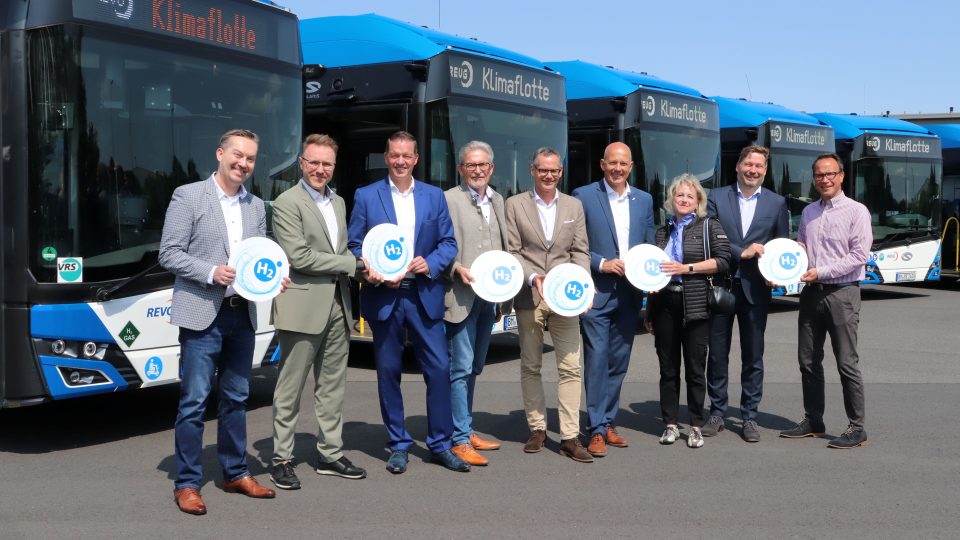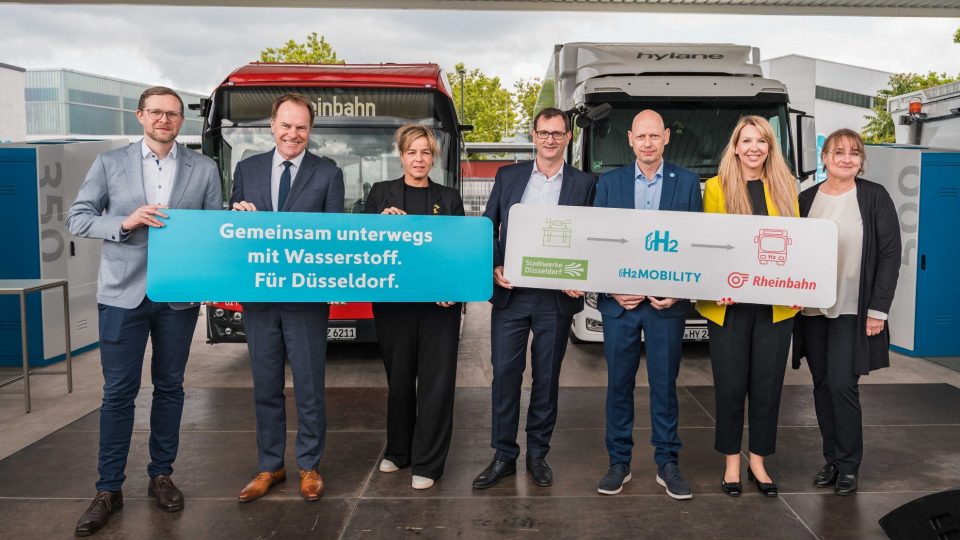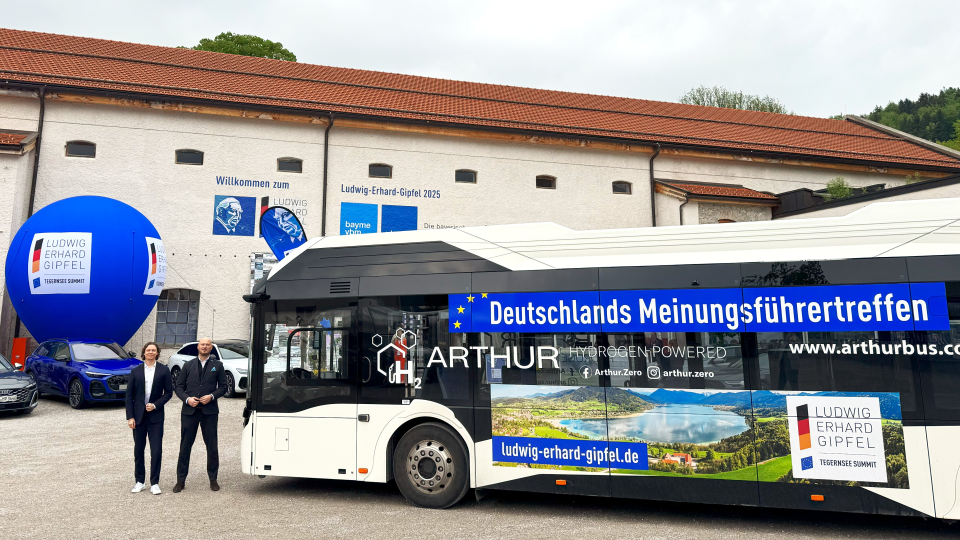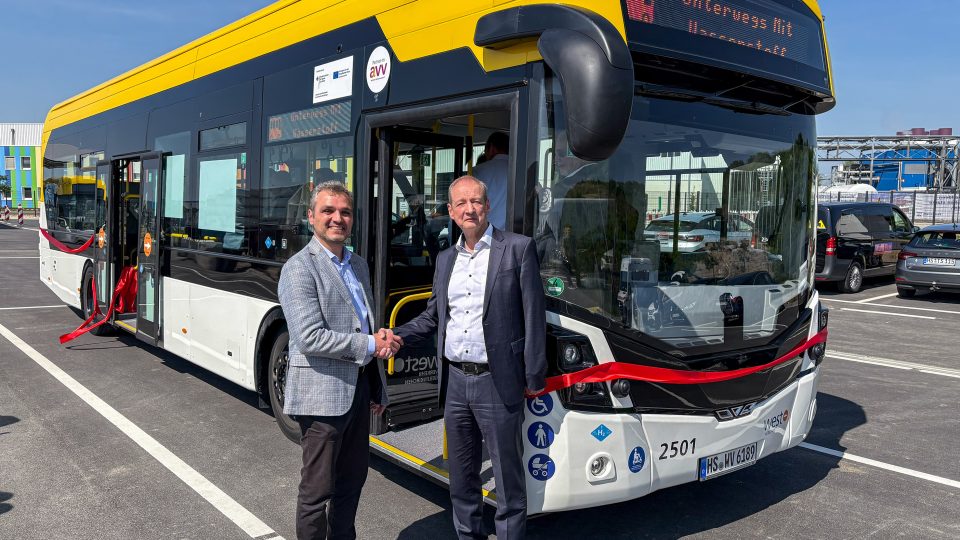Three Van Hool fuel cell buses in Aalborg (Denmark) from October 2019 through a EU project
From October 2019 Denmark will have in operation the country first fuel cell bus system, in Aalborg. Three Van Hool buses and the refuelling station are financed by the EU through the project 3Emotion, whose aim is to promote hydrogen technology in public transport. The hydrogen buses in North Jutland will run for three years as part of […]
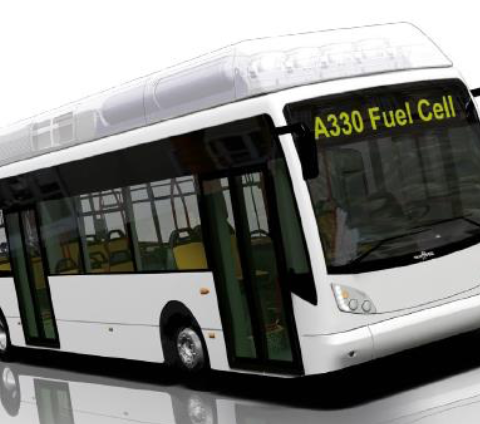
From October 2019 Denmark will have in operation the country first fuel cell bus system, in Aalborg.
Three Van Hool buses and the refuelling station are financed by the EU through the project 3Emotion, whose aim is to promote hydrogen technology in public transport. The hydrogen buses in North Jutland will run for three years as part of the 3Emotion project, but it is expected that the buses will continue in normal service after the project period.
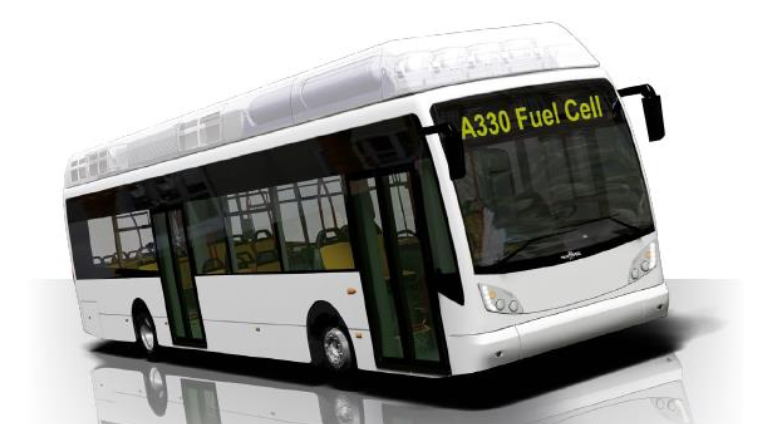
Van Hool fuel cell buses in operation from October 2019
North Denmark Region and the Municipality of Aalborg have signed a few days ago the contracts for delivery of three hydrogen buses and for the erection of a hydrogen production and filling station, explains 3Emotion in a press release. The buses will be running on one citybus line in Aalborg and on selected regional bus lines around Aalborg from October 2019.
“Use of hydrogen is innovative within public transport, where we can reduce CO2 emissions significantly and completely avoid particle pollution in the immediate environment: Hydrogen buses emit only steam during travel. And by using only electricity from renewable energy sources, such as wind or solar when producing the hydrogen, hydrogen as fuel will be completely CO2 neutral” says Ole Stavad, Chairman of the Committee for Regional Development in North Denmark Region.
GreenHydrogen will deliver production and filling station
In parallel with the hydrogen bus contract, the Region and the City of Aalborg, 3Emotions points out, have also signed a contract on an electrolysis system for production of hydrogen from electricity and on a filling station for refilling the busses with hydrogen. It is the aim that the production system is managed so that it is primarily in use during those hours and periods, where there is a surplus of electricity from wind turbines in the grid. In this way, the hydrogen becomes largely CO2-neutral. The production and the filling station will be delivered by the Danish company GreenHydrogen.
Van Hool fuel cell buses in Denmark
The buses will be delivered by Van Hool. Supposedly, the Belgian manufacturer will supply the new A330 FC. The same modelwill be delivered in 30 units to Cologne (that is tendering 53 battery electric buses), and other 10 vehicles will be deployed in Wuppertal through Jive 2 EU funded program. The vehicle, when deployed on flat urban service lines, will be equipped with 24 kWh traction battery and 85 kW hydrogen fuel stack. The version of the bus for regional and hilly city services is fitted with a 36 kWh traction battery. Van Hool is also developing the innovative Van Hool Exqui.City 18 FC bus, which will be on the road from the end of 2019 in Pau, France in the first BRT system in Europe running on hydrogen.
Fuel cell buses, the choice for regional routes
Fuel buses are, on one hand, still very expensive even if compared to battery electric vehicles. On the other hand, they are a much longer operational range than electric busses, and they are therefore more suitable for the regional bus routes and for the longer city bus routes, where the electric buses would require frequent recharging.
Fuel cell buses, a bright future ahead?
Fuel cell buses are expected to importantly grow their market share in the years to come. ZeEUS eBus Report #2 released by UITP says fuel cell buses are expected to have a market share of 2 per cent in 2020 and 10 per cent in 2030, in the segment of urban buses and in European area. Still a little “slice” compared to the 52 per cent forecast of battery electric… but the multiplication for five is anyway impressing and opens up interesting scenarios for after 2030 years.
In 2019, European manufacturer Solaris Bus & Coach (recently taken over by Spanish group CAF) will unveil the Solaris Urbino 12 hydrogen, a new generation vehicle deriving power from a hydrogen fuel cell.
Another competitor in the field of fuel cell buses is Toyota: its vehicle Sora has been approved and launched on the market (in the picture below). Ballard FCvelocity is also adopted by El Dorado National’s 40-foot (12 meters) Axess Fuel Cell Electric Bus, available in the US. The vehicle successfully completed testing at The Altoona Bus Research and Testing Center under a program established by the Federal Transit Administration (FTA).
Denmark also leader in H2BusEurope project
In October 2018 it was announced that 200 fuel cell buses will be deployed in Denmark by 2020 within the framework of H2BusEurope project, selected by the Connecting Europe Facility program (CEF) for a proposed award on close to EUR 40 million. The H2BusEurope project, developed by the hydrogen company Nel and other leading industry partners, aims to get a total of 600 fuel cell city buses on the roads in selected regions in Europe and establish sufficient supply of green hydrogen with Nel and H2Stations. Further details will be revealed within a few months.




